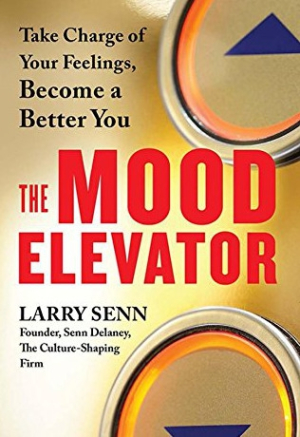The Mood Elevator
Take Charge of Your Feelings, Become a Better You
Addressing life’s ever-changing emotional pulls, The Mood Elevator is likely to be an engaging and educational read for employees, managers, and senior executives alike.
Organizational consultant Larry Senn makes excellent use of the elevator analogy to explain how moods go up and down, and how all people can use certain techniques to “help [them] control [their] rides.” Interestingly, the concept applies not just to individuals, but to organizations, as Senn demonstrates through his example of the lightheartedness attributed to the entire staff of Southwest Airlines.
Clearly written short chapters provide specific ways to get the “Mood Elevator” going in the right direction. Especially intriguing are such concepts as “unhealthy normal” (a state that occurs when someone grows so accustomed to negative emotions that they are not even noticeable) and “pattern interrupt” (a technique to “let go of one train of thought and switch to another”).
Broader ideas for emotional improvement center around maintaining physical and mental health, being grateful, and having faith. Acknowledging people’s differences is also important; as Senn wisely states, “it’s generally impossible to say who is ‘right’ or ‘wrong’ when matters of opinion and perspective are involved.”
If thoughtfully considered, the messages in The Mood Elevator are the kind that could affect the manner in which life is lived, as well as one’s overall happiness and satisfaction. This is a powerful book with intrinsic value that is both a personal self-improvement guide and a manual for enlightened executives who want to run emotionally healthy organizations.
Reviewed by
Barry Silverstein
Disclosure: This article is not an endorsement, but a review. The publisher of this book provided free copies of the book to have their book reviewed by a professional reviewer. No fee was paid by the publisher for this review. Foreword Reviews only recommends books that we love. Foreword Magazine, Inc. is disclosing this in accordance with the Federal Trade Commission’s 16 CFR, Part 255.

